4 Exercises You Should Never Do Alone, Trainer Says
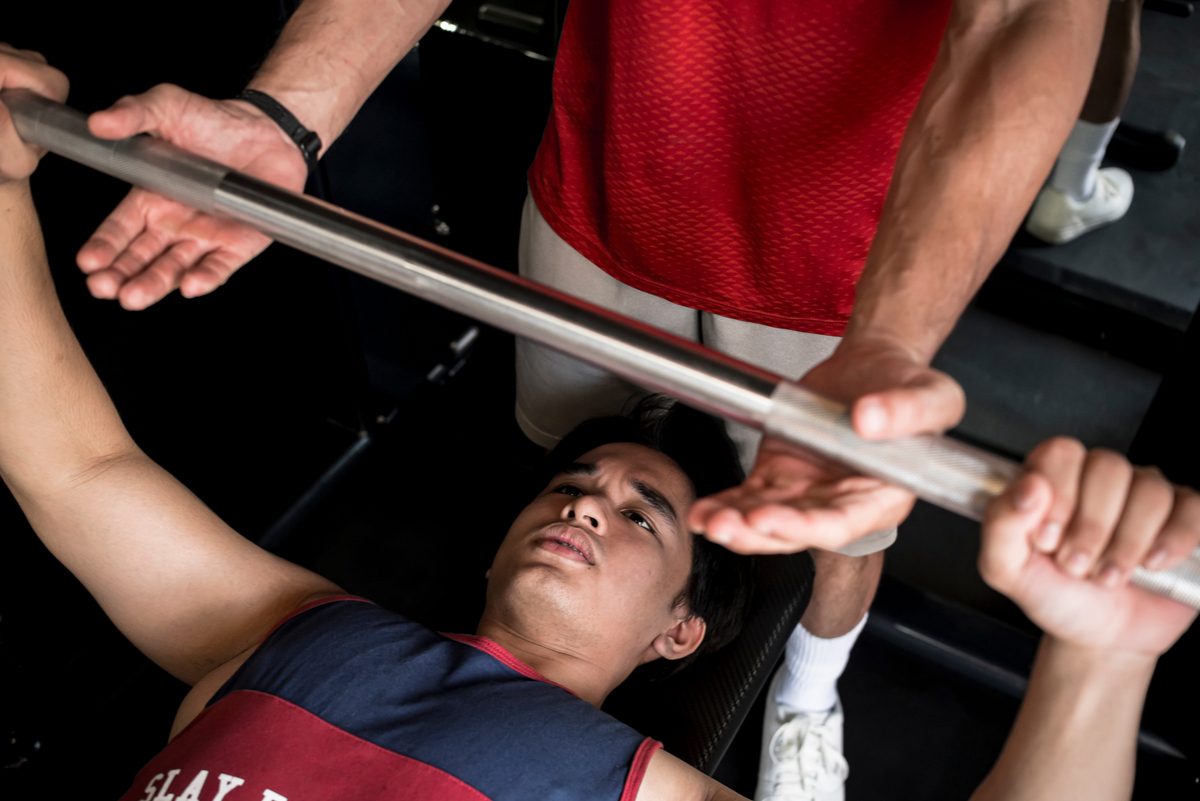
In order to stay pain- and injury-free during your fitness journey, it’s absolutely crucial to learn the proper form for all of the exercises you attempt to do. If you’re just starting out, you can certainly learn on your own, although hiring a coach (such as yours truly!) can help guide you through using every gym machine or weight the right way. Not only does this make you feel more confident, but having proper form ensures that you’re using the right muscles—and not compensating with the wrong ones—during each movement, which allows you to continue making progress and get stronger with each of your strength training sessions.
Once you’ve nailed proper form, you can start adding weight to your exercises in order to build muscle and burn fat at a faster and more efficient rate. However, as you increase the weight, you should increase caution—you’d be surprised how easy it can be to hurt yourself if you don’t have a spotter or gym buddy looking out for you.
What follows are a few exercises that you shouldn’t do alone, especially if you’re a newbie to strength training or weightlifting. Ask a friend to assist you when attempting any of these moves and you’ll exit the gym with all gain and no pain. Next, check out my 4 Exercises to Adopt ASAP for a Lean Body.
Olympic Weightlifting
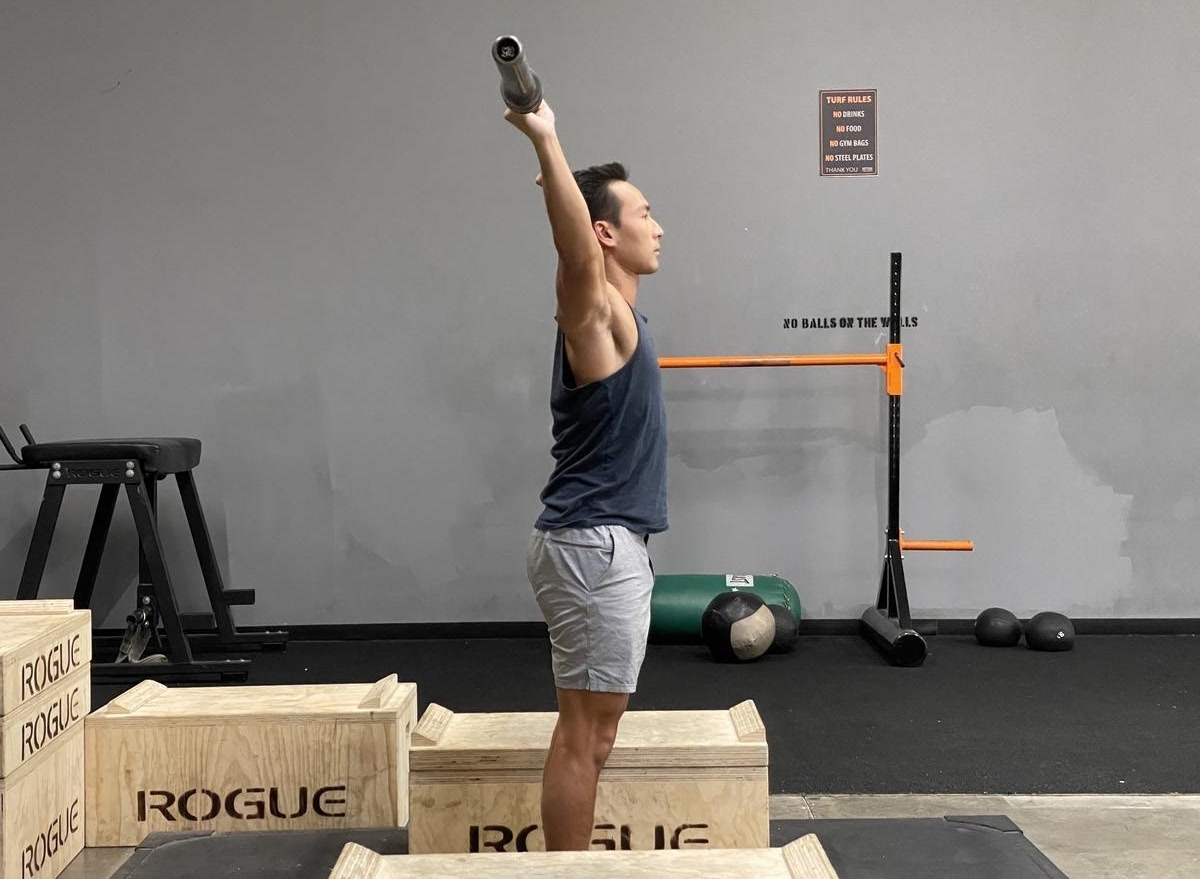
Although Olympic lifts can be a great tool to develop explosive power and speed, they are also very technical. This exercise takes a long time to learn, and if you’re not being coached on each phase of the movement, you’ll likely compensate with the wrong muscles, which can lead to injury.
Unless you’re extremely proficient in both cleans, snatches, and their variations, I recommend having a coach watch your form to make sure you’re doing the movement properly. (And if you have no idea what I’m talking about, you should absolutely have a guide to walk you through Olympic lifts before trying to attempt them.)
Related: Sign up for our newsletter for the latest health and fitness news!
Heavy Barbell Bench Press (5 rep max or heavier)
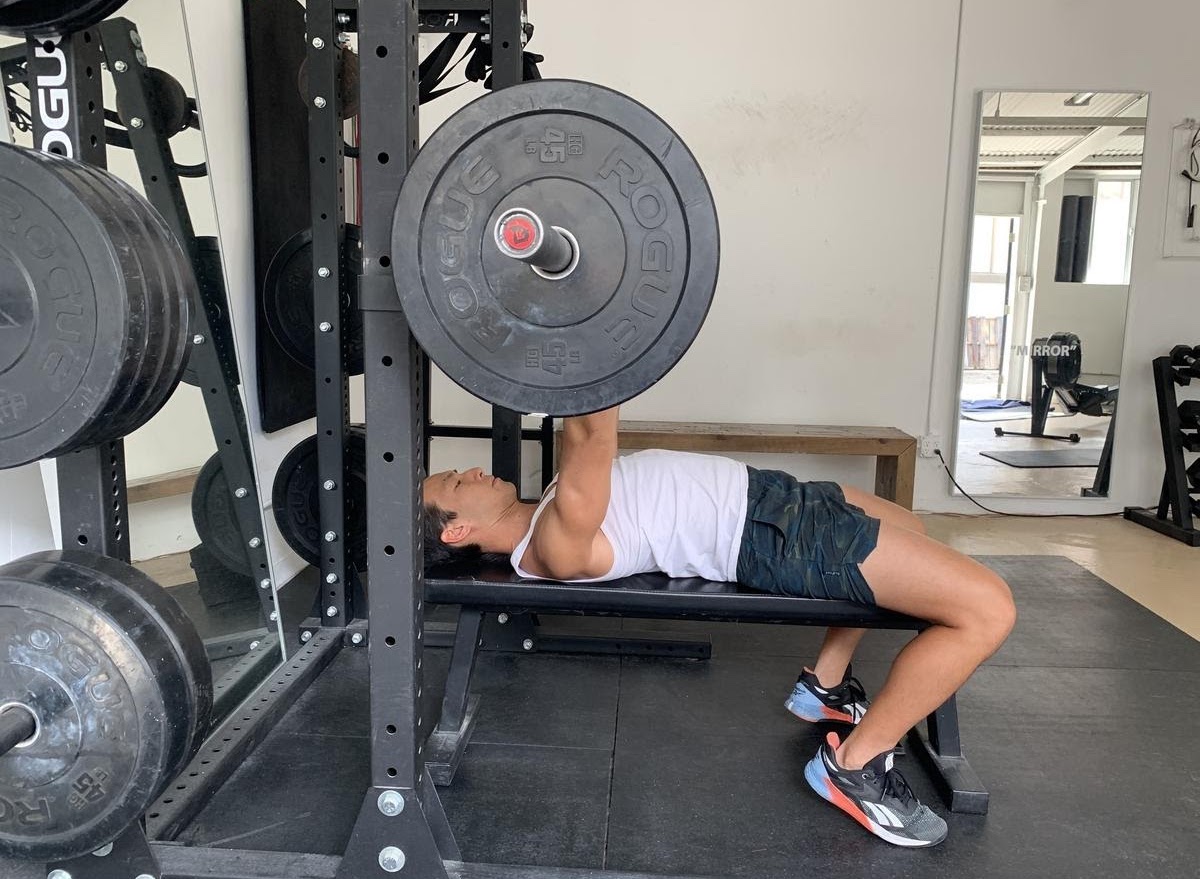
Although the barbell bench press (and its variations) is one of the most popular upper body lifts that anyone can perform, it’s a good idea to have a spotter—especially if you plan on using heavier weights than usual.
The last thing you want is to be squished underneath the barbell because you couldn’t complete a rep during a heavy set. Having a spotter will make sure that you have a good setup with your shoulders and elbows even, and he or she can bail you out if and when you need help.
Related: The #1 Best Place to Exercise, New Study Says.
Heavy Barbell Back Squat (5 rep max or heavier)
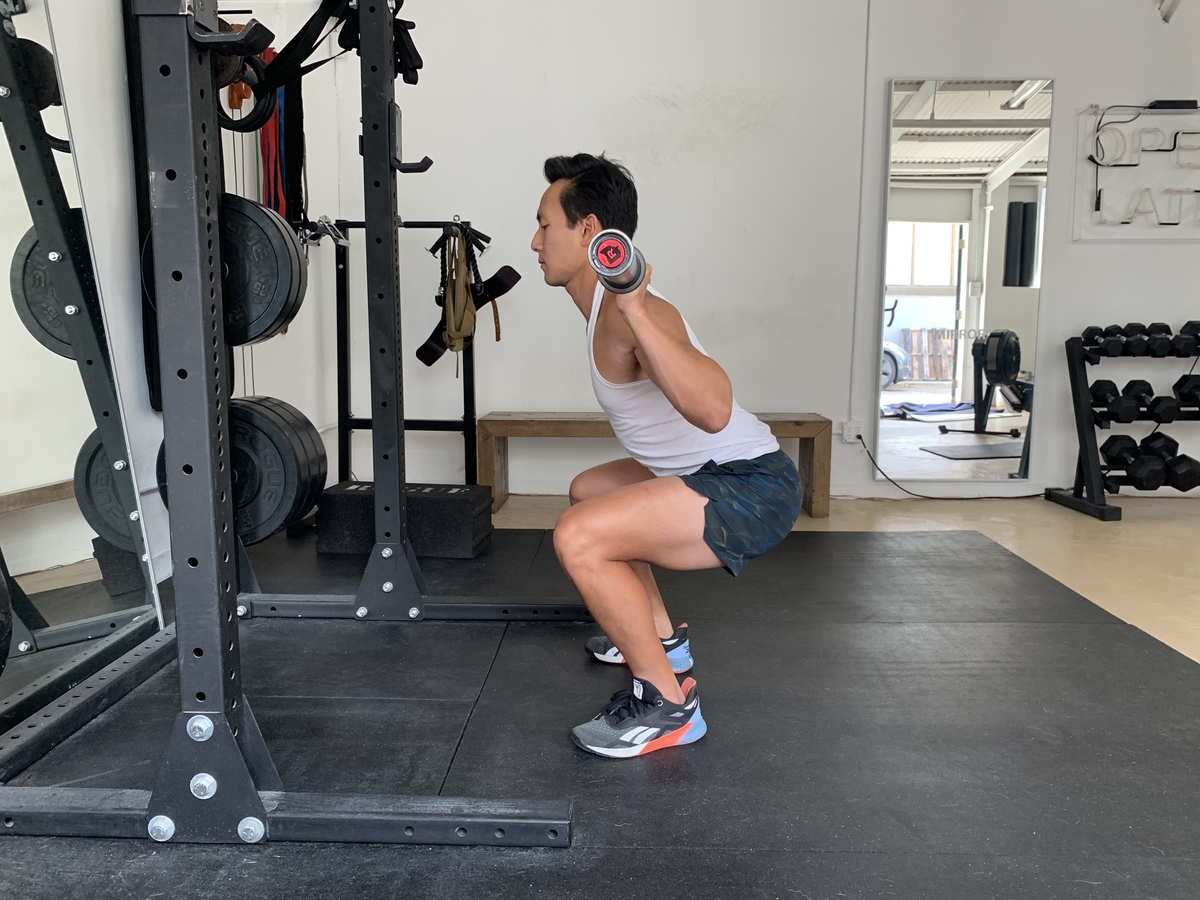
Just like the heavy bench press, you should perform heavy barbell squats when you have a spotter. A good spotter will take note of how your knees are tracking (to prevent injury), make sure you’re hitting the right depth, and help you with completing the rep if you get stuck in your squat.
Related: This Workout Is Better for Your Health Than Running, Trainer Says
Heavy Dumbbell Bench Press
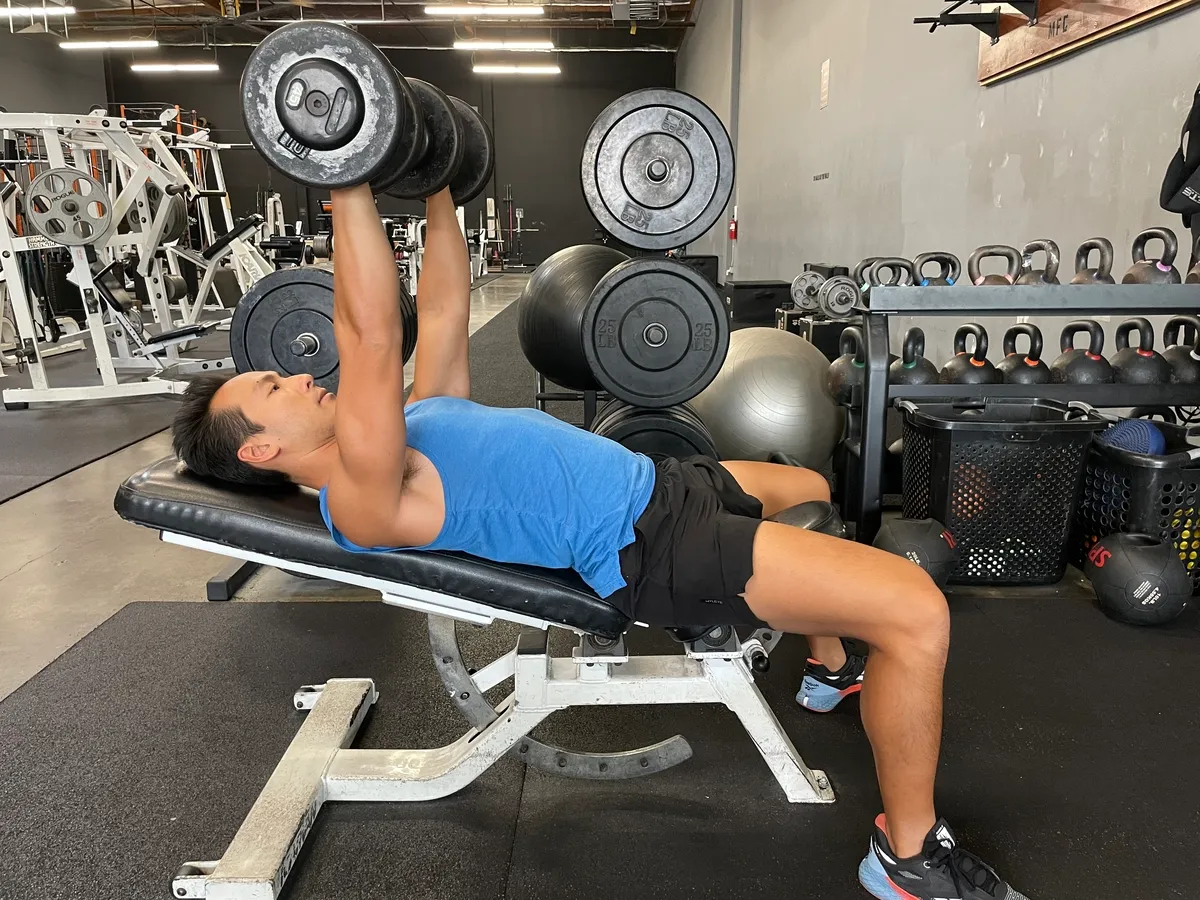
Considering you’re working with two separate weights, the dumbbell bench press requires more stability than the barbell version. As you get stronger and increase the weight, it can become harder to get set up properly in the starting position by raising the dumbells toward the sky.
I recommend having someone spot you in order to help you get the dumbbells up initially, then watch your set to make sure you’re able to control the weight the entire time as you raise and lower. This person can also help you in case you can’t finish the set and need to bail.
Remember, when you’re using heavier weights than normal and pushing your own limits, use common sense: It’s smart to ask for help before you really need it.
For more, check out the news that Science Just Confirmed You Don’t Need Cardio to Burn Fat.